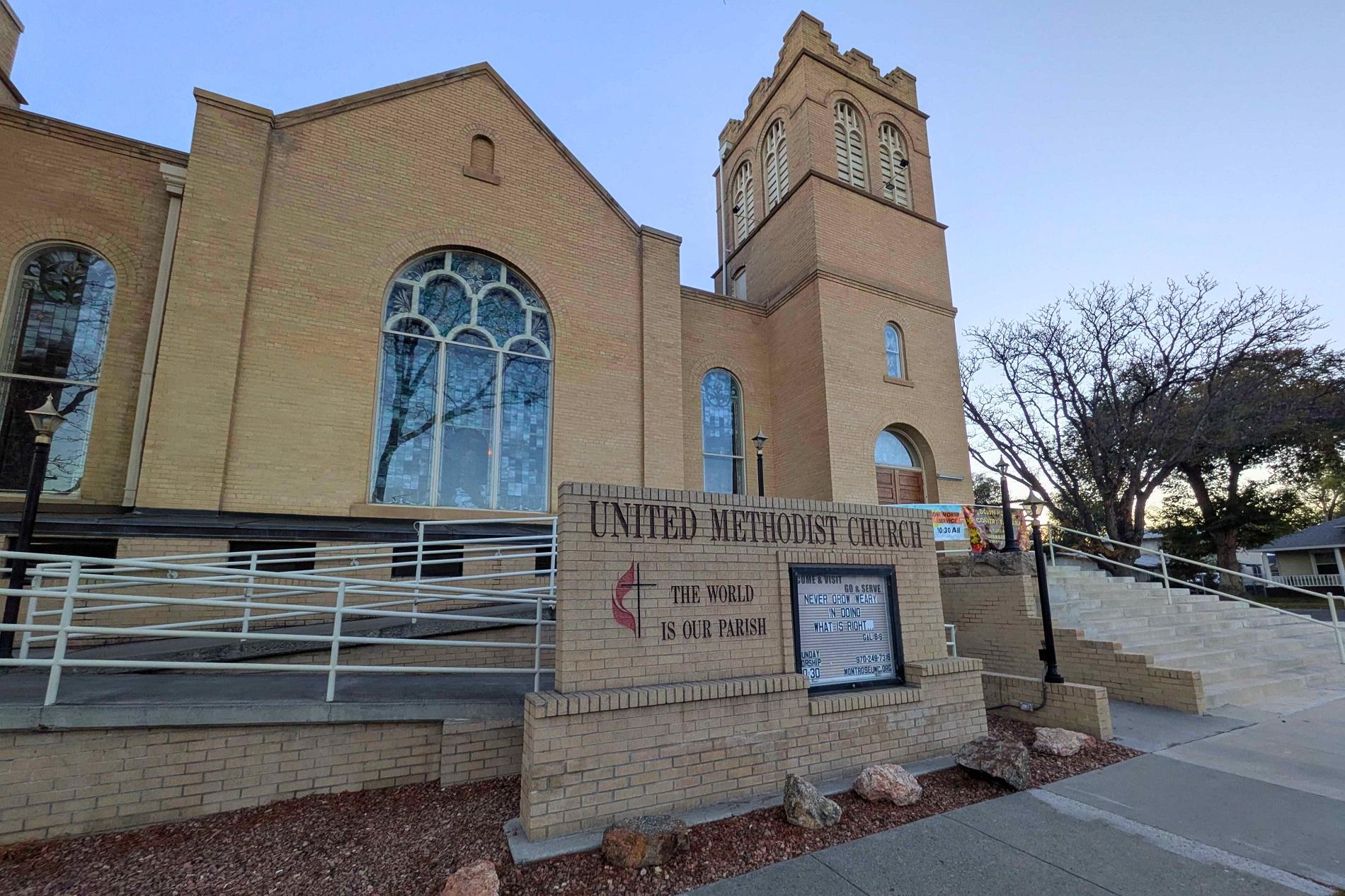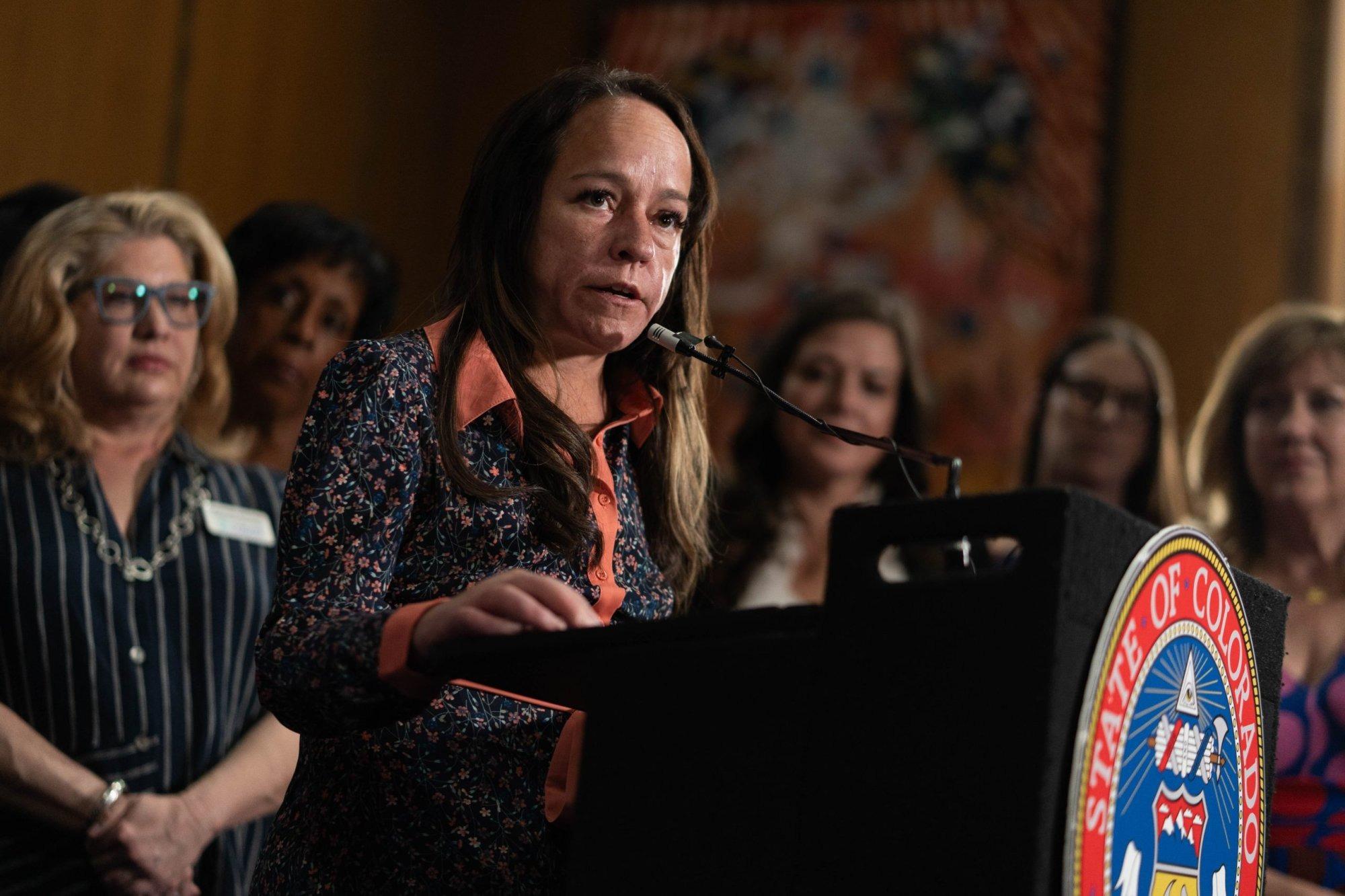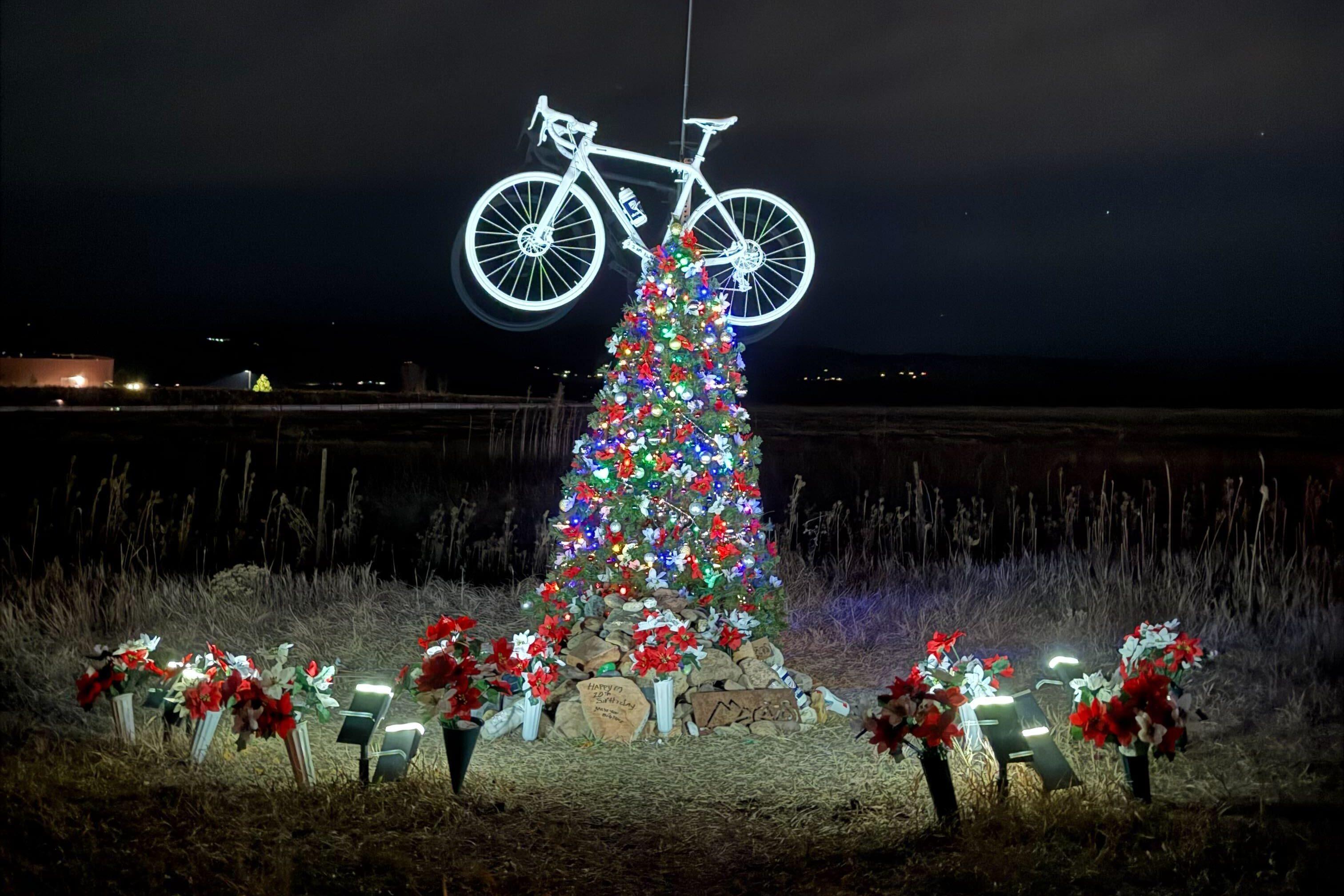
The Montrose United Methodist Church has been found guilty on four of five counts related to citations they received last winter for allowing unhoused residents to camp on their property.
A week after a marathon trial featuring more than a dozen witnesses, Montrose Municipal Judge Thomas LeClaire sided with the city on four counts: the storage of litter; nuisance prohibited; uses not listed by zoning and maintenance requirements for supplemental structures. The church was found not guilty on a charge of keeping of junk.
All the citations were based on municipal ordinances and represent a fraction of the citations issued last winter to the church. The church maintained that they were attempting to create a safe place for some of the city’s unhoused residents after the city strengthened its prohibitions on camping.
The city responded by issuing regular citations as well as seeking an emergency abatement order in municipal court and by taking the case to district court. The emergency abatement request was denied by a since-fired city judge and the district court declined to hear the city’s case.
The ruling, dated Wednesday, bases much of its finding in municipal code and dismissed large segments of the trial that focused on other factors. Much of the argument made by the city, including the closing statements, focused on drug overdoses near the church, including a fatal one that occurred outside the camp.
“The evidence, two drug overdoses within the Church quad during the operation of the encampment and a drug overdose death of a person located on the Church’s property, but not inside the encampment, were not crimes or wrongs perpetrated by the Defendant First United Methodist Church nor were they pertinent to the Defendant’s character,” LeClaire wrote in his explanation. “They were tragic medical events that established no relevant fact about the citations issued for the period February 13th - February 16th 2025. Other pertinent and direct evidence was presented during the trial that illuminated the determination of the five charged violations of City ordinances.”
The city was allowed to present that evidence at trial after LeClaire deferred on a pre-trial motion from the church to have it excluded. LeClaire reasoned at trial that, because he was considering the case and not a jury, he could hear it first and then determine its relevance. The judge ruled similarly on testimony presented by the city showing a spike in crime near the church, even though the data was for a five-month period around the church and not specific to the February dates included in the citations.
“The offenses charged for the period charged are temporal, which is to say the offenses occur when they occur. Trending or persistence of any alleged offense is not contained in the ordinances and is not required to find a violation,” LeClaire ruled.
In explaining the guilty findings, LeClaire pointed to testimony from Montrose police officers, code enforcement and fire officials who saw the camp and noted litter as well as fire lane violations and health code violations. LeClaire did find that the church’s argument that items declared to be “junk” by city officials, were in fact just people’s belongings.
Though LeClaire had ruled before the trial that the church could not make a First Amendment based argument, he addressed the question again in Wednesday’s ruling.
“With respect to the First Amendment argument, the Court finds that the enforcement of the ordinance code sections and the zoning proscriptions and requirements with which the Defendant is charged are being applied equally to all entities located within the B-1 zone and that Defendant has not been singled out for enforcement. Therefore, the alleged constitutional protections do not exist as a legal matter to the violations alleged in this case,” LeClaire wrote.
Punishments for the church as a result of the guilty verdicts have not yet been decided. That will be handled at a sentencing hearing that has not been scheduled. Representatives for the Montrose United Methodist Church could not be reached for comment as of this publication.









